C-section is one of the major surgical procedures, that takes a toll on both the mental and physical health of a mother. Therefore, it is important to focus on all aspects of post-operative care for a speedy recovery. One of the important factors to take care of for a speedy recovery from the C section is food. While you must include certain foods in your diet after C –section, there are some foods to avoid after cesarean delivery.
Good nutrition is a must for speedy and proper healing after your cesarean delivery along with proper rest and a positive environment. It is highly recommended to opt for relatively bland, non-greasy foods within the first few days after a C-section. This article will shed some light on foods to avoid after cesarean delivery.
Why Restricted Diet Is Advised After C Section
After a C-section, the mother needs the right nutritious diet for a speedy recovery, as well as for feeding the baby. To facilitate a quicker healing, recovery process and promote optimal healing, certain foods are kept off the menu for a new mother.
Focusing on a balanced diet is crucial for the growth and development of the baby, especially if you are breastfeeding your newborn. It is generally recommended to exclusively breastfeed a baby for the first 6 months of their life. They depend on you completely for their nutrition. Having the right foods will ensure that the breast milk you feed your baby is sufficient in both volume and nutrition.
It is also important for you to eat food that other than being nutritious facilitates you with:
- Easy bowel movements: Constipation can be a cause of huge discomfort for new mothers, given that they are weak and have stitches. Straining the c-section stitches can increase risk of hemorrhage and infection, hence soft foods that facilitate easy bowel movements are recommended for new mothers
- Enable and support tissue repair: Since vitamins contain antioxidants that help repair tissues, new mothers are given fruits rich in Vitamin C. Additionally, eating foods rich in proteins will aid in healing the tissues and is also great for your baby
- Easy digestion: A restricted diet to a new mother is designed keeping in view the fact that she is weak and needs to eat food that does not cause discomforts such as gas and bloating, and does not take a toll on the digestive system
- Boosting your immune system: A new mother’s immune system is largely compromised. A restricted diet with loads of vitamin C and zinc will reduce risk of infection and keep the immune system strong
You have just had a major surgery, and need to be back to full health as soon as possible. You mustn’t eat anything that may cause complications, such as digestive issues, or hinder your speedy recovery. It’s important to be mindful of your dietary choices to support a smooth recovery and minimize discomfort. While specific recommendations may vary based on individual circumstances, here are some general guidelines on foods to avoid after a C-section:
11 Foods To Avoid After Cesarean Delivery
Most mothers and elder family members advise a variety of dietary restrictions after delivery, especially after a c-section. The common instructions regarding food choices are to abstain from drinking milk after a c-section and from eating nonvegetarian food and rice.
Food restrictions are based on the belief that these foods can delay the healing of the surgery. No wonder all are anxious about the scar healing, as the C- section involves cutting through many layers to get the baby out safely.
However, the majority of these food restrictions are merely myths without any scientific basis. On the other hand, some of the food restrictions put forth by our grandmothers have some strong reasons as well.
Here are 11 foods to avoid after Cesarean delivery:
1. Ghee and rice
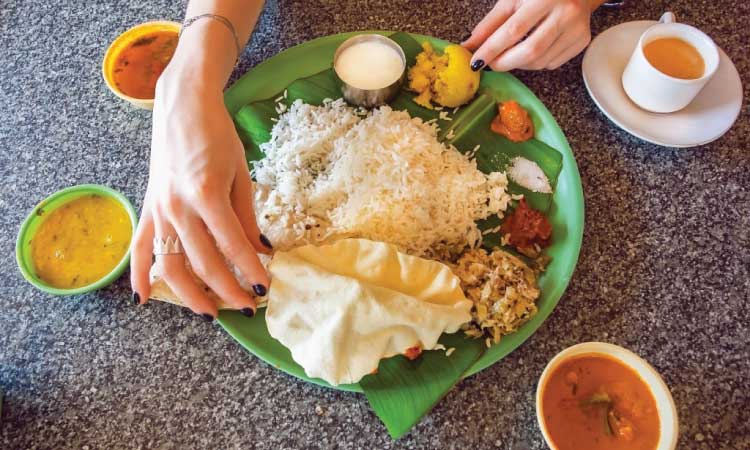
Ghee has been known to boost metabolism and provide energy. However, after a c-section, the intake of ghee is restricted. You do not have to avoid eating it entirely, but you must keep a tab on how much ghee you are consuming. Ghee is a calorie-dense food and must be eaten in moderation, if not completely avoided.
Eating too much ghee is not good at any stage of life. Like oil, too much intake of ghee can also trigger many health issues. The main issue is that excessive consumption of ghee makes it harder to shed the weight put on during pregnancy.
According to studies, obesity and high blood sugar of mothers are two contributing factors that delay the healing of C section scar. Therefore, depending on the health condition of the mother, it is better to restrict the intake of ghee and rice after C –section.
Related Reading: How To Keep C-section Incision Dry When Overweight?
2. Spicy food should be avoided after C-section delivery
Eating bland food is generally recommended after a c-section delivery. Regardless of how much you crave spicy food, it is always better to abstain from heavily spiced food after a c-section. Spicy food can cause many digestive issues like bloating which could increase the pain in the incision area.
Plus, you are breastfeeding your infant as well. The spices may make your infant not like the flavor of breastmilk.
Therefore, if you are a hard-core fan of strong-flavored and spicy Muglai gravies or the red chili tadkas, wait until the scars are fully healed before including them in your postpartum menu.
3. Carbonated drinks
It is important to increase fluid intake after a C-section to enable easy bowels and produce optimum milk for the baby. However, this doesn’t involve carbonated drinks.
Carbonated drinks are loaded with sugar and artificial flavors and preservatives, making it an unhealthy choice not only for women who underwent C-sections but for all groups of people. They are also diuretic in nature and will cause you to use the bathroom frequently.
Carbonated drinks, instead of hydrating, can potentially dehydrate the body. Dehydration after a C-section can pave the way for many side effects, including weight gain, constipation, and gas.
Dehydration can adversely affect breast milk production as well. Also, abstain from drinking caffeine-rich drinks like tea and coffee. Since your baby’s digestive system is still developing, they cannot process caffeine. This can make them cranky and cause you discomfort.
Related Reading: Can I Drink Green Tea While Breastfeeding?
4. Jackfruit to be avoided after Cesarean delivery
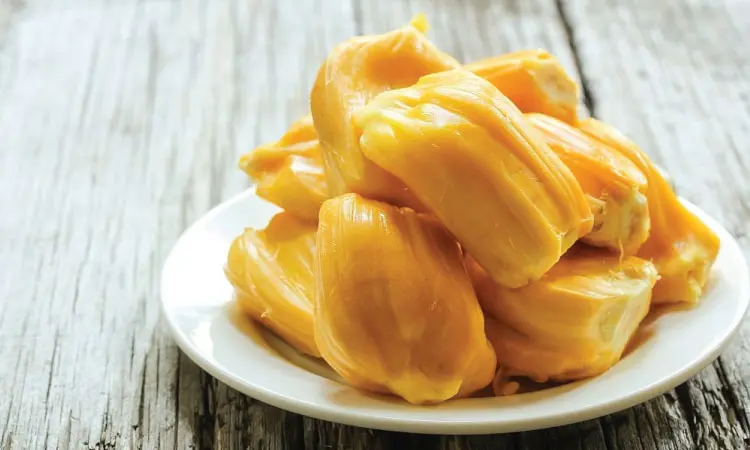
It is better to remove jackfruit from your menu during the initial weeks after a C –section. Eating jackfruit can trigger some digestive issues like heartburn and an upset stomach, which can heighten the discomforts and pains after the c- section.
Jackfruit is found to trigger acidity after delivery. When it comes to breastfeeding, eating jackfruit can increase the risk of colic in the newborn. Hence, it is best to avoid it for some time after delivery.
5. Avoid foods that can cause gas
Many food items like red beans, green peas, urad dal, besan, chole, etc are loaded with many essential nutrients and proteins that are crucial for postpartum. Still, it is advisable to wait a few weeks until your bowel movements are stabilized before including these in your menu.
Likewise, vegetables like potatoes, mushrooms, cauliflower, bhindi, broccoli and cabbage are excellent sources of vital minerals and can be used to prepare many yummy dishes. Even then it is better to wait until the suture pain subsides before loading up on these delicious food items
This is because all these food items are gas generating and can cause too much flatulence in the new mother. Passing gas after a c-section can be pretty painful. Therefore, it is better to restrict or avoid its intake for the first 40 days.
6. Fermented, fried, junk, and fast food: a complete NO after Cesarean
After delivery, especially after a C–section, the activity level of the new mother will be very low. Therefore, it is important to abstain from fast food and junk food. Not only do these deep-fried foods increase the risk of putting on unnecessarry weight, but junk food like rolls, burgers, etc. are loaded with spices, sauces, processed meat, and additives.
None of it is good enough to be a part of your diet after cesarean delivery as it can disturb the stomach lining and create various gastric issues.
Likewise, fermented foods can bring about severe side effects like bloating (that causes stomach pain) and histamine intolerance (that could trigger headaches, hives, rhinitis, and digestive issues like vomiting and loose motion) in mothers.
7. Avoid foods that can constipate you
Constipation is a common issue found in many mothers after a c-section. It is quite normal for the digestive system to take around 3 to 4 days (sometimes even longer) to come back into its normal track after major surgery, like a c-section.
Medications and a lack of mobility further contribute to constipation.
Therefore, it is important to avoid foods that cause constipation after a c-section. Or else it can aggravate constipation. Fried and fast food, low fiber food, processed foods, eggs, etc. are some of the foods that trigger constipation.
8. Avoid cold food
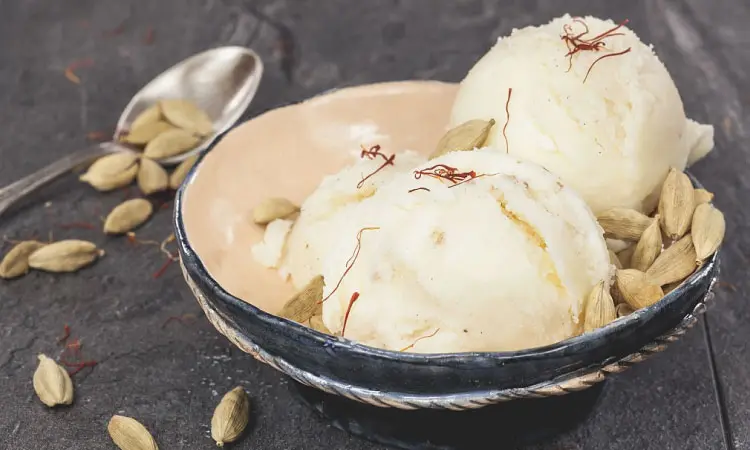
It is important to stay away from cold foods after a c-section. Extremely cold food can impede the proper blood flow in the mother. Further, the immunity level of a mother will be very low, and she is susceptible to common infections like colds, coughs, and sore throats.
Eating cold food increases her chances of catching colds and coughs. And sneezing and coughing after a c-section is quite painful. Avoid chilled yogurts, ice creams, and ice cube-loaded shakes after a c-section.
Related Reading: 6 Traditional Post-Delivery Drinks That Help
9. Don’t have noodles after C-section delivery
“Can I eat Maggie after c-section” is a more frequently asked question in many forums. Here comes the sad news for the noodles lovers. It is not wise to eat noodles, at least during the initial weeks after the c-section.
First of all, noodles are made from Maida, and Maida-rich food should be avoided after a c-section. Also, the tastemaker that comes with noodles is not at this stage. Moreover, noodles have no nutritional value. And post-pregnancy is a period you have to focus on nutrient-dense food, both for fast recovery and happy breastfeeding.
However, if you really crave noodles, choose healthier options like whole wheat noodles or oats noodles and add lots of vegetables. And yes, eat them sparingly.
10. Undercooked food
Just like during pregnancy, you have to suppress the urge to eat uncooked food like sushi after delivery, especially after C-section. Pork, poultry, eggs, and fish are rich in protein. And it is important to increase the protein intake after a c-section because protein is important for repairing the damaged tissues.
However, it is important to make sure you eat only well-cooked food at this stage. Any undercooked food like under-cooked omelets and uncooked meats can cause indigestion and other stomach issues that delay the healing of the c-section scars.
Even though fishes are loaded with iron, and it is important to increase the iron intake after c- section to compensate for the blood loss during the surgery.
However, it is important to stay away from some fish like swordfish, shark, king mackerel, and tilefish that are high in mercury. This does not only impair your health but if passed to the baby via breast milk, is harmful to your baby too.
11. Eggs and milk
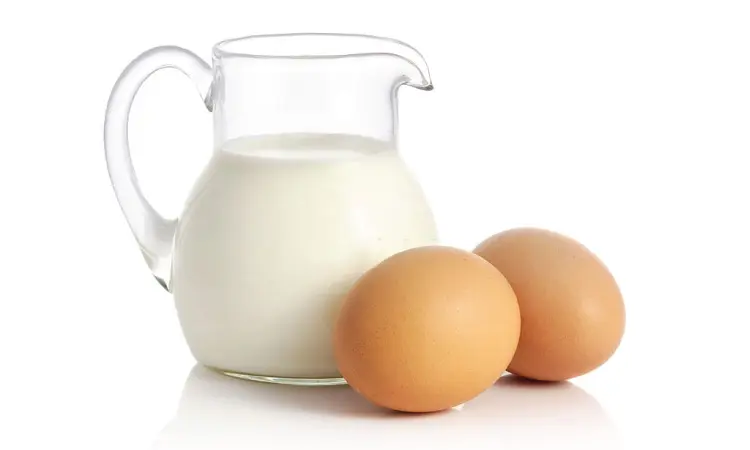
Even though eggs and milk are considered healthy foods, they may not suit all mothers. For some mothers, cold milk creates stomach pain, and warm milk triggers acidity. Milk can also be hard to digest for new mothers. Likewise, eggs can cause bloating in mothers which can be very painful after a c-section.
Important Tips To Get The Most Out Of Your Restricted Diet After A C-section
- Embracing a restricted diet after a cesarean section (C-section) can significantly contribute to your recovery and overall well-being. Here are some tips to help you make the most of your restricted diet and support a smooth healing process:
- Instead of having 3 large meals, break them down into 6 smaller meals. This way your sensitive digestive system will not need to work overtime
- Chew your food well, take small bites. This will facilitate better digestion. Eat in a clean place in peace
- Keep yourself hydrated by drinking plenty of water. Not only will it help you keep constipation at bay, but it will also aid in producing optimal milk for the baby
- Avoid food that is not home-cooked. This will eliminate the risk of eating anything that has not been cooked fresh
Conclusion
The time after delivery, no matter if the delivery was normal or cesarean – is crucial for the new mother and newborn. It a period when a woman becomes weak both emotionally and physically or both. Optimal nutrition after a C-section is crucial for fast recovery.
While choosing the right foods during this time can enhance the healing process wrong food can delay it. Hope this article was helpful.

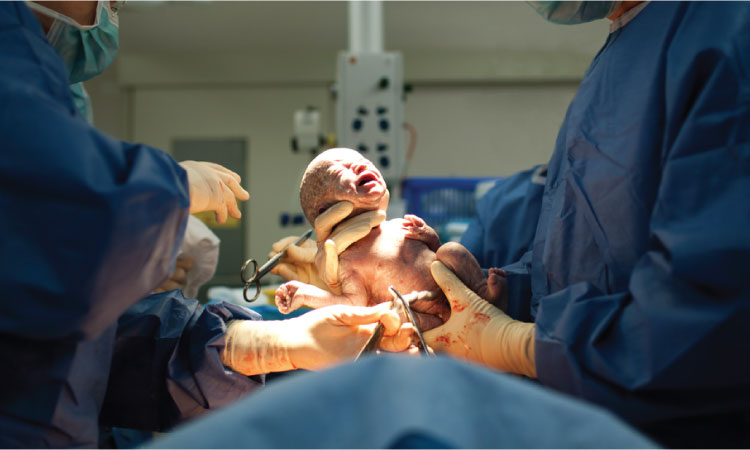

2 comments
Good blog post. Inspiring blog . Santhathi Fertility Centre has been providing high quality IVF treatment with highest success rate. For more information visit website https://www.santhathiivfcentre.com/
Thank you it is very useful